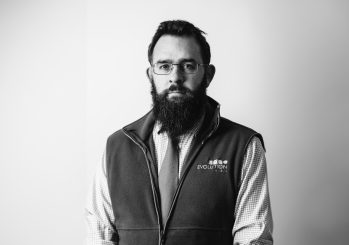Just Paid Tax: Take a Moment to Pause and Reflect
Having paid tax at the end of January and now approaching the end of the 2019/20 tax year, many people will now be contemplating how they can reduce this year’s tax liability. Before springing into action, however, it may be useful to pause and reflect on the long term objectives of the business and the family. Recapping where you are trying to get to can be very helpful in making confident decisions for the short term which are aligned with those longer term goals.
For example, parents may wish to step back from the business in the future to give greater freedom to the next generation. Being financially independent of the business will be key to allowing the parents to confidently make this step. A key objective may therefore be to accumulate wealth outside of the core business, whilst continuing to grow the business to pass on a successful and viable enterprise. There is therefore an important balance between how much of the profits should be invested in the business and how much outside of it.
When it comes to investing in the business, it is widely understood that spending money on qualifying plant and machinery can reduce taxable profits. The Annual Investment Allowance is currently £1million, although this is set to revert to £200,000 from 1 January 2021, so the timing of capital expenditure in accounting periods straddling that date should be carefully considered.
Investing tax efficiently outside of the business is perhaps less well understood. One option is making contributions into a qualifying pension scheme. Contributions usually benefit from basic rate tax relief at source and also extend the basic rate tax band, meaning less income is taxed at the higher rate.
For example, a higher rate tax payer pays £8,000 into a personal pension plan, with basic tax relief of £2,000 being claimed from HMRC and paid directly into the
pension fund. The gross contribution of £10,000 extends the basic rate tax band, resulting in a £2,000 higher rate tax saving. Overall it has cost £6,000 to invest £10,000 in the pension fund.
In recent years the rules surrounding how benefits can be drawn from pension funds have altered, making them a more flexible and attractive investment vehicle. With sound advice from a financial advisor they can be used as an important part of wealth management and succession planning, as well as saving Income Tax in periods of strong profitability.
All investments, whether on or off-farm, of course consume cash. With the difficult planting season that has been experienced over recent months, consideration should be given to how this will impact upon business cash flows for the year (or two…) ahead. Be it reduced grain receipts next winter or higher feed prices, cash flow could be restricted. Whether tying up cash in machinery purchases or pensions, cash flow forecasts should be reviewed before making any significant commitments.
In summary, it is usually advantageous to think through the long term implications of any Income Tax planning that is undertaken, to ensure that it compliments, rather than detracts from, longer term objectives. If you would like to discuss the above, or any other pre-yearend tax planning points, please do not hesitate to contact us.
The content of this article is for general information only and does not constitute tax advice. It should not be relied upon and action which could affect your business should not be taken without appropriate professional advice.


Dan Knight FCA CTA MCIArb
Partner
Dan grew up straddling the hills and hedgerows of the Dorset and Somerset border, where life on a dairy farm gave him a deep appreciation for the rhythms, responsibilities, and realities of agricultural life. Before qualifying as a Chartered Accountant, Chartered Tax Adviser, and Accredited Mediator, he spent several years working hands-on in farming. This practical experience continues to shape how he listens, thinks, and advises.
It also showed him that sound judgement matters more than spreadsheets, and that most important decisions are not made in boardrooms. They are made around kitchen tables.
Before joining Evo in 2019, Dan led the rural tax team at a regional firm. He now specialises in succession planning and restructuring, helping farming families plan boldly and act wisely. His work sits where land, legacy, and human emotion intersect.
Dan’s approach is rooted in curiosity, care, and a refusal to offer pre-packaged advice. He sees his role as part facilitator, part translator, and part challenger. He helps clients understand what they really want and how to move towards it with confidence.
At Evo, Dan champions individuality, encourages honest conversations, and keeps the focus on what matters most to each client. He believes that good planning is not just about getting the numbers right. It is about helping people move from uncertainty to action, with a shared sense of purpose.
Away from work, Dan finds great joy in supporting his son’s journey on the rugby field. He values the sport for the same reasons he values farming life: it is built on hard work, commitment, and a deep rooted care for the people around you. Whether offering encouragement on the pitch or helping families shape the future, Dan stays focused on what it takes to build trust, support growth, and invest in the next generation.